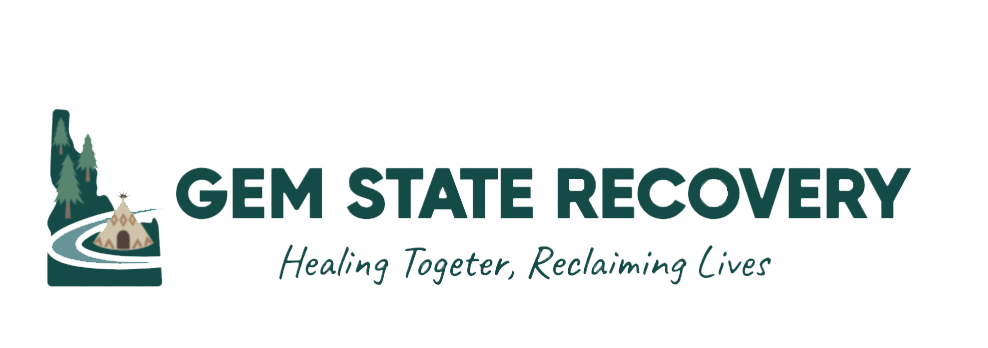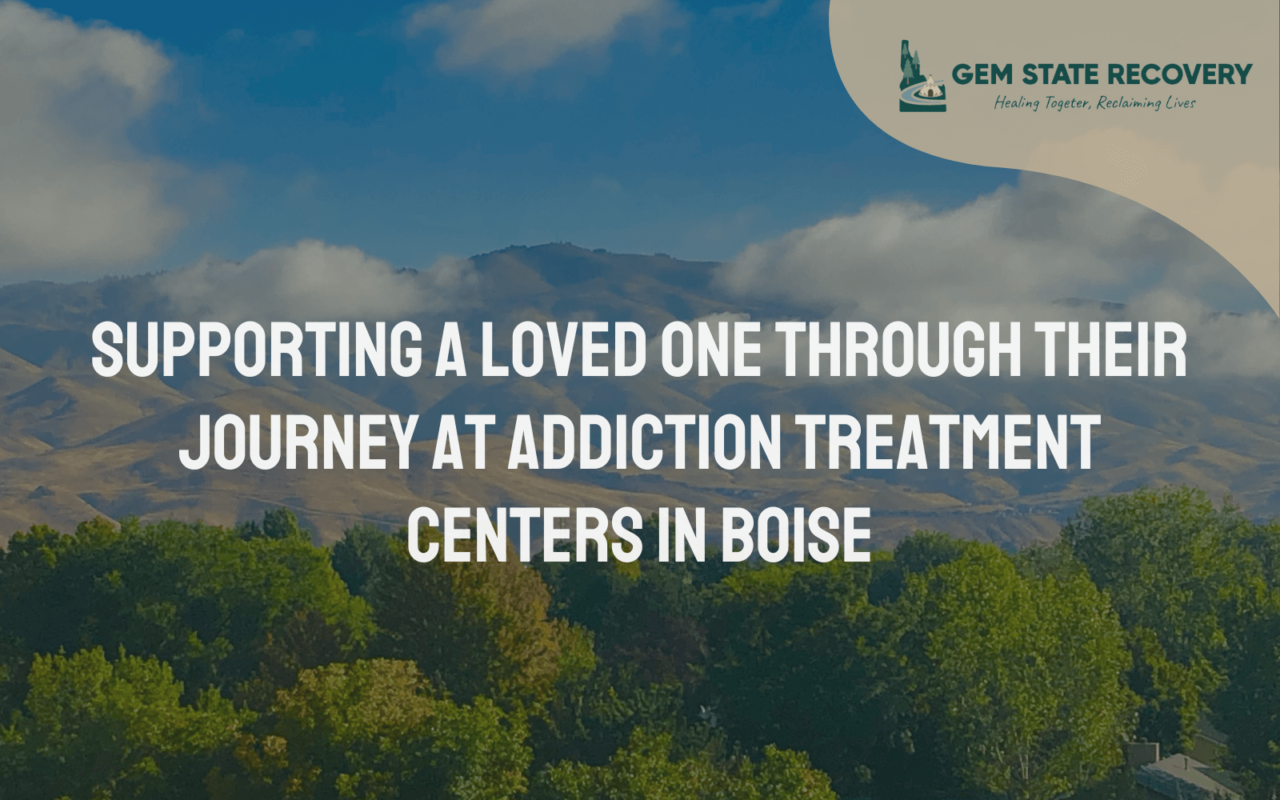Watching someone you love struggle with addiction is one of the most difficult challenges a family or friend can face. The emotional pain can be overwhelming, and the sense of helplessness often grows as you try to understand how to support them through this complex and painful journey. However, if your loved one has made the brave decision to seek help and enter one of the many trusted Addiction Treatment Centers in Boise, your support can make a world of difference in their healing process.
Addiction affects not just the individual but everyone close to them. Relationships, trust, and family dynamics often become strained or broken. For this reason, addiction treatment centers in Boise focus on a holistic, inclusive approach that addresses not only the individual’s recovery but also involves the family in the process. At Gem State Recovery, we have seen the transformative power of family involvement. We emphasize how important it is to equip both patients and their loved ones with the tools necessary for lasting recovery.
This comprehensive guide is designed to support you—whether you’re just beginning this journey with a loved one or have already entered into the world of addiction treatment. It offers insights into how to support your loved one before, during, and after their treatment, explains the importance of family therapy and education, and offers guidance on navigating common challenges.
The Critical Role of Addiction Treatment Centers in Boise
Understanding the role of addiction treatment centers in Boise is the first step in being able to provide meaningful support for your loved one. These centers play a vital role in guiding individuals struggling with addiction toward recovery by offering structured and compassionate care. Treatment centers specialize in providing personalized care plans that address the various facets of addiction, recognizing that every individual’s journey is unique. They are designed to help individuals not only detox physically in a safe and monitored environment but also rebuild their mental, emotional, and social well-being through counseling, therapy, and peer support. Many centers also incorporate family programs, education, and relapse prevention strategies to ensure a comprehensive approach to recovery, helping individuals regain control of their lives and strengthen their relationships.
What Do Addiction Treatment Centers Offer?
Addiction treatment centers in Boise provide an array of services tailored to the needs of those struggling with substance use disorders. These services generally include:
- Medical Detoxification: This is the first step in treatment, where withdrawal symptoms are managed under medical supervision to ensure safety and comfort. Detoxification helps the body rid itself of harmful substances.
- Inpatient/Residential Treatment: For individuals who require a higher level of care, inpatient treatment offers 24/7 supervision and support in a residential setting. This is especially beneficial for those with severe addiction, as it provides a structured and immersive environment free from external triggers.
- Outpatient Programs (OP & IOP): Once the individual stabilizes, outpatient care is available for those transitioning back into their daily lives. Outpatient treatment is more flexible, allowing individuals to live at home while attending therapy sessions.
- Dual Diagnosis Treatment: Many individuals with addiction also struggle with co-occurring mental health disorders, such as anxiety, depression, or PTSD. Dual diagnosis treatment addresses both the addiction and the underlying mental health issue, leading to a more comprehensive and effective treatment plan.
- Aftercare & Sober Living Support: Recovery does not end when formal treatment finishes. Aftercare programs, including sober living homes, outpatient therapy, and 12-step meetings, are essential for maintaining sobriety and preventing relapse.
At Gem State Recovery, we offer a variety of evidence-based therapies that may include Cognitive Behavioral Therapy (CBT), Dialectical Behavioral Therapy (DBT), trauma-informed care, and holistic approaches such as mindfulness and yoga. Every treatment plan is personalized because we understand that no two recovery journeys are identical.
Why Boise?
Boise offers a unique and nurturing environment for recovery, making it an exceptional location for those seeking addiction treatment. Surrounded by serene landscapes, including mountains, rivers, and vast open spaces, Boise provides a calming backdrop that fosters healing and self-reflection. The city is home to a supportive recovery community, where individuals can connect with others who understand their journey, creating a sense of belonging and encouragement.
In addition to access to high-quality treatment programs, many addiction centers in Boise integrate outdoor activities into their therapeutic approaches. Activities such as hiking, equine therapy, and nature walks not only promote physical health but also enhance mental and emotional well-being. These holistic opportunities complement traditional therapy methods like counseling, group sessions, and medical interventions. Boise’s blend of natural beauty, innovative recovery options, and strong community support makes it an ideal place for individuals to rediscover themselves and build a healthier, substance-free future.
How to Support Your Loved One Before Treatment
If your loved one has not yet entered a treatment center, supporting them in this crucial stage is essential. Here are several ways you can help them take the step toward treatment:
- Encourage Them to Seek Help Without Force
It can be difficult to encourage someone to seek treatment, especially if they are not yet ready. Instead of using force or ultimatums, approach the conversation with empathy and understanding. Express your concern in a way that makes it clear you are there to help, not judge.
For example, use “I” statements instead of “you” statements. Rather than saying, “You’re ruining your life,” try, “I’ve noticed you’ve been struggling, and I’m concerned about your health. I’d love to help you find some resources.” Share information about addiction treatment centers in Boise and offer to assist with the research or even accompany them to a consultation.
- Research Treatment Options Together
Not all addiction treatment centers in Boise are the same, so it’s important to do your research and find the right fit for your loved one. Consider key aspects like:
- Does the facility provide medical detox services?
- What type of therapies are included in their treatment plan?
- Does the center offer family involvement in the recovery process?
- What does the aftercare program look like?
At Gem State Recovery, we offer free consultations to help families make an informed decision about the best treatment option for their loved ones.
- Prepare for the Emotional Impact
Entering treatment can be overwhelming for anyone. Your loved one may experience feelings of fear, shame, or resistance. Reassure them that seeking help is not a sign of weakness but an act of strength. Let them know that it’s okay to feel anxious about the process, but that this is a necessary and important step toward healing.

Supporting Your Loved One During Treatment
Once your loved one has entered an addiction treatment center, your role as a supporter continues. Here are several ways you can actively support them during their treatment:
- Participate in Family Therapy
Many addiction treatment centers in Boise, like Gem State Recovery, offer family therapy as part of their programs. These sessions allow families to work through issues caused by the addiction, including repairing damaged relationships, improving communication skills, and addressing enabling behaviors. Family therapy also educates families about the nature of addiction, helping you better understand how to support your loved one’s recovery.
- Educate Yourself About Addiction
Addiction is a complex disease, and it’s important to understand the science behind it. Addiction is not a moral failing or a lack of willpower; it’s a disease that alters the brain’s chemistry. Learning about the triggers, cravings, and stages of recovery can help you approach your loved one’s journey with more empathy and patience. Many addiction treatment centers in Boise offer resources, workshops, or reading materials to educate families about addiction.
- Communicate with Compassion
It’s important to use compassionate communication during the recovery process. Avoid using judgmental or guilt-inducing statements, such as, “Why can’t you just stop?” or “Look at what you’re doing to the family.” Instead, try offering words of encouragement, such as, “I’m really proud of you for taking this step” or “I know this is difficult, but I’m here for you.”
- Set Healthy Boundaries
Supporting your loved one doesn’t mean enabling their behavior. It’s essential to set boundaries to protect both your well-being and your relationship with them. For example, avoid offering financial help that could be misused or covering up consequences for their actions. Be sure to prioritize self-care—if you don’t take care of yourself, you won’t be able to fully support your loved one.
- Visit or Stay Connected (If Allowed)
If the addiction treatment center permits visitation or phone calls, stay connected with your loved one. A simple “How are you feeling today?” can offer them emotional support and reassurance that they are not alone in their recovery.
Navigating Challenges in the Recovery Process
The road to recovery is rarely a straight path. Relapse, emotional struggles, and feelings of frustration can arise. Here’s how to handle some of the common challenges that may arise during recovery:
- Relapse Doesn’t Mean Failure
Relapse is a common part of the recovery journey, but it is not a reflection of your loved one’s failure. If your loved one relapses, try to stay calm and refrain from shaming them. Encourage them to re-engage with their treatment and focus on identifying the triggers that led to the relapse. Many addiction treatment centers in Boise offer relapse prevention programs to help individuals stay on track.
- Managing Your Own Emotions
It’s natural to feel angry, sad, or frustrated as you support your loved one. These emotions are normal, but it’s important to manage them constructively. Consider therapy for yourself or joining a support group, such as Al-Anon or Nar-Anon, to connect with others who understand what you’re going through.
- Rebuilding Trust
Addiction often damages trust between loved ones. Rebuilding that trust takes time and patience. Celebrate small milestones in your loved one’s recovery and acknowledge the progress, even if it seems minor. Consistent, supportive actions will slowly help rebuild trust over time.
Life After Treatment: How to Support Long-Term Recovery
The journey doesn’t end once your loved one completes their program at an addiction treatment center. Here are a few ways to support long-term recovery:
- Encourage Aftercare Participation
Ensure that your loved one continues to engage in aftercare programs, such as outpatient therapy, 12-step meetings (e.g., AA/NA), or sober living homes. Check in with them to ask about their meetings or how they’re doing in their ongoing treatment.
- Create a Sober-Friendly Home Environment
Ensure that your home is a safe, sober environment by removing alcohol or drugs from the house. Also, try to avoid triggering situations, like hosting parties or frequenting places that could tempt your loved one early in their recovery. Instead, encourage healthy hobbies such as exercise, art, or volunteering.
- Be Mindful of Language
Be careful with your words. Instead of saying things like, “Are you sure you’re okay?” which may sound distrustful, try offering support by saying, “I’m here if you want to talk.”
- Celebrate Milestones
Celebrate your loved one’s milestones in recovery, whether it’s 30 days sober, six months clean, or one year in recovery. Acknowledge their achievements and reinforce positive behaviors, as small celebrations can motivate continued progress.
Why Choosing the Right Addiction Treatment Centers in Boise Matters
Choosing the right addiction treatment center is crucial to your loved one’s recovery. When researching addiction treatment centers in Boise, ensure they meet these important criteria:
- Licensed and accredited programs
- Medical detox services
- Evidence-based therapies, such as CBT, DBT, and trauma therapy
- Opportunities for family involvement
- Strong aftercare programs and support
At Gem State Recovery, we meet all of these criteria and more, providing individualized, compassionate care that focuses on long-term recovery.
Final Thoughts: Your Support Makes a Difference
Your loved one’s recovery is a journey, and by offering support, compassion, and guidance, you can make a significant difference. Educate yourself, set healthy boundaries, and stay involved in their treatment. With the right addiction treatment center and your ongoing support, your loved one can have the opportunity to live a fulfilling, sober life.
If your family is considering addiction treatment centers in Boise, Gem State Recovery is here to help. Our team provides comprehensive care for both patients and their families, ensuring a solid foundation for lasting recovery. You don’t have to walk this path alone—reach out today and take the first step toward healing. For more information, visit our website https://gemstaterecovery.com/ or call us at (208) 314-3107.





